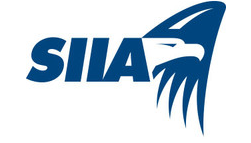By Sandra Fenters
For the first time since 2014, micro captives have been omitted from the IRS’ list of what it perceives as areas of tax avoidance.
This is good news for our industry and the broader industry as well.
However, we need to be realistic in understanding that the IRS has not dropped captive insurance from its’ focus in the future. You will see in the article below that the IRS explicitly states that it will continue to address issues related to micro-captives.
But given all that is on the plate of the IRS and the government in general, we may see less enforcement activity in 2020.
ARTICLE:
Micro captives were not listed on the Internal Revenue Service’s (IRS) 2020 ‘Dirty Dozen’ list of tax scams, for the first time in five years.
Published in Captive Insurance Times, July 16, 2020
The annual list is a compilation of a variety of common scams that the IRS suggests represent “the worst of the worst tax scams” and should be avoided by taxpayers.
For the last five years, the IRS has referred to micro captives as an “abusive tax shelter” and suggested that certain micro captive “structures, promoters, accountants or wealth planners persuade owners of closely-held entities to participate in schemes that lack many of the attributes of insurance.”
Although micro captives were not mentioned on the IRS’ official list, it did state that an upcoming series of releases will be published on topics such as abusive micro captives and fraudulent conservation easements.
The IRS said that these releases “will emphasize the illegal schemes and techniques businesses and individuals use to avoid paying their lawful tax liability”.
The IRS has had a number of tax court successes against micro captives over the past few years.
In the Avrahami case in 2017, the US tax court disallowed the “wholly unreasonable” premium deductions the taxpayer had claimed in a micro captive arrangement and concluded that the arrangement was not insurance under long-established law.
Last year, in the Reserve Mechanical case, the tax court determined that the transactions in another micro captive arrangement were not insurance.
Prior to those two rulings, the IRS issued guidance that micro captive transactions have potential for tax avoidance and evasion in 2016, and established reporting requirements for them via Notice 2016-66.
More recently, the IRS mailed a time-limited settlement offer for certain taxpayers under audit who participated in ‘abusive’ micro captive insurance transactions last September.
The IRS announced earlier this year that 80 percent of taxpayers who received offer letters elected to accept the settlement terms.




 Act.
Act.